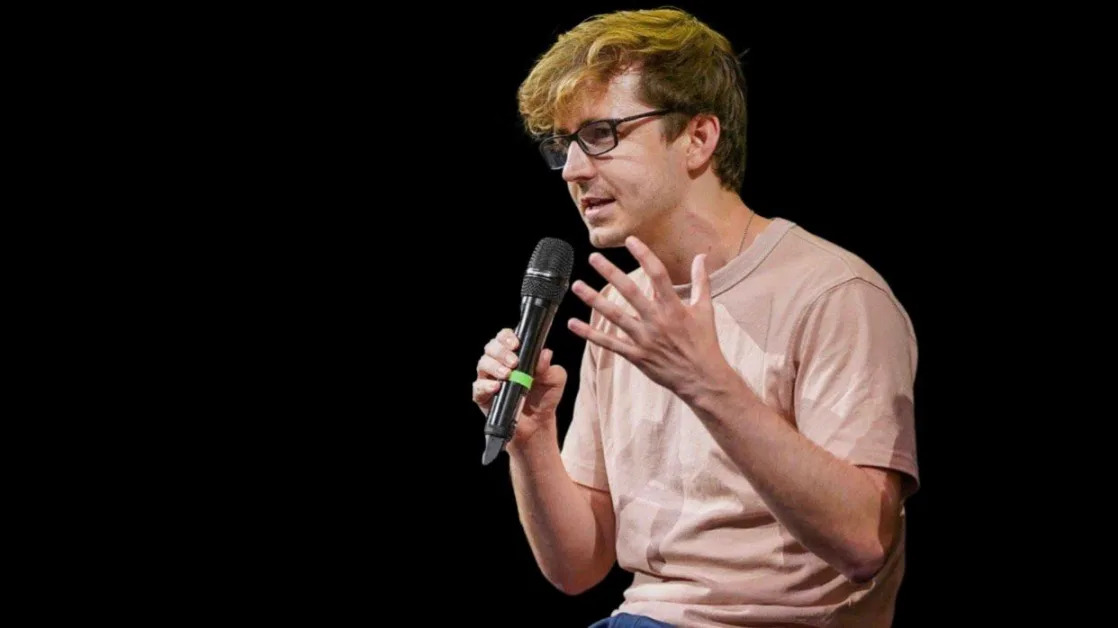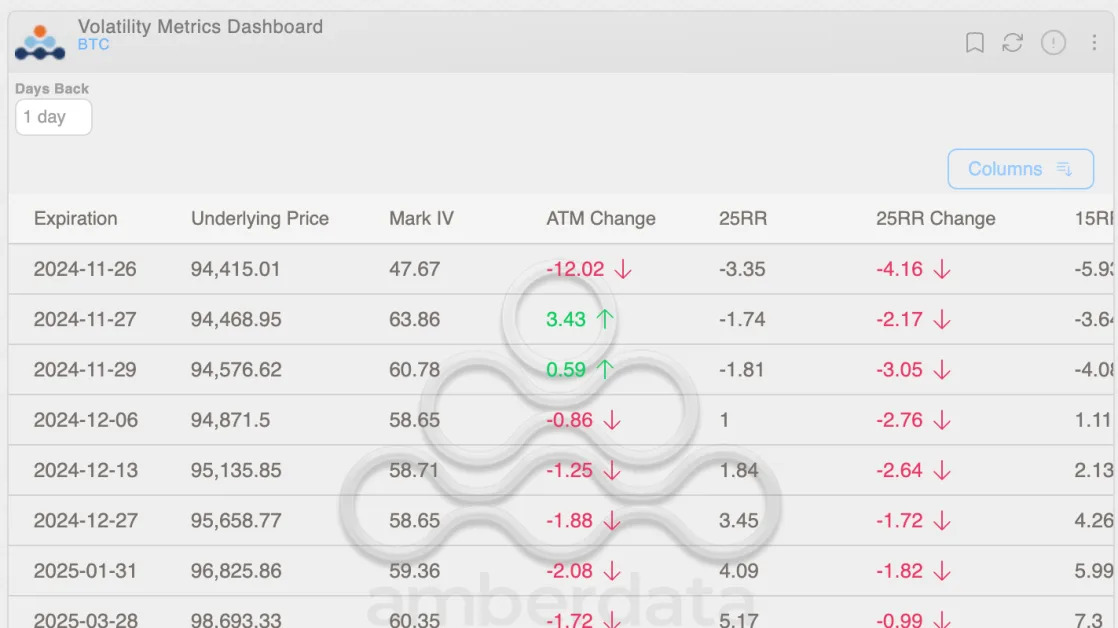(Bloomberg) -- To the crypto company Tether, the account was identified only by a 31-character string: TTAHMdqoom4f2VTWniroPWQHcTRZ4ca.
It’s a cryptocurrency wallet address, one of more than 300 million around the world that have held Tether tokens and make up a global unregulated payments network. Unlike a bank or fintech company, Tether collects no personal information about most of its users. Anyone can open a crypto wallet and move money with Tether quickly, cheaply and anonymously.
As Howard Lutnick, the Commerce secretary nominee who’s Tether’s most prominent booster in the US, has said, “It’s the digital dollar all over the world.”
It turns out that particular crypto wallet was controlled by Sa’id al-Jamal, a financier of the Houthi fighters attacking merchant ships in the Red Sea, according to the US Treasury Department. The US made the allegations about the wallet and four others in a statement last month. Al-Jamal was sanctioned by the US in 2021 for his ties to terrorist groups, a punishment intended to lock him out of the dollar-based financial system. Still, he was able to use those crypto wallets to send and receive more than $300 million of Tether, according to crypto research firm ChainArgos, which analyzed the public blockchain data at Bloomberg’s request.
It’s not just Al-Jamal. Tether has become the go-to digital currency of the criminal world. North Korea’s regime, Mexican drug traffickers and Southeast Asia-based human traffickers and scammers have all been caught using it to move millions of dollars. Deputy Treasury Secretary Wally Adeyemo warned Congress last year that Russia was using the cryptocurrency to circumvent sanctions and finance its war in Ukraine.
Lutnick, the 63-year-old billionaire chief executive officer of Cantor Fitzgerald LP, has made his bank the linchpin of the Tether system. There are now more than $130 billion worth of Tether tokens outstanding, and Cantor holds most of the US Treasury bonds that back them — the reason they’re trusted to be worth $1 each. Lutnick stepped in about three years ago at a time of crisis for Tether and vouched for the company when few others would. In return, Tether has paid Lutnick’s firm tens of millions of dollars, and Cantor purchased a minority stake in Tether, according to people with knowledge of their relationship who asked not to be named because the companies view the details as sensitive.
As Commerce secretary, Lutnick wouldn’t have responsibility for crypto, though the department has issued reports about how the industry should be regulated. Still, he’d have the president’s ear as Cantor’s client wrestles with scrutiny from US regulators and investigators. Lutnick’s relationship to Tether likely will be questioned when the Senate Commerce Committee holds confirmation hearings for President-elect Donald Trump’s nominee. Those hearings haven’t been scheduled but could be as soon as next week, according to a committee staffer.
“I am deeply concerned by Lutnick’s past work with a company under investigation for its ties to sanctioned entities like Russian arms dealers, Chinese fentanyl traffickers and North Korean nuclear weapons programs,” said Senator Elizabeth Warren, a Democrat from Massachusetts who isn’t on the committee. “A Commerce Secretary is supposed to fight for America’s interests — not his own personal interests or those of former clients whose actions undermine our national security.”
To comply with federal ethics rules, which prohibit working on matters that affect one’s financial interests, Lutnick has said he’ll divest from Cantor and his other companies, though he has also said his stakes won’t be sold on the open market. A spokesperson for the company and for Lutnick declined to give more details or to respond to any questions about Tether. A spokesman for the Trump transition team declined to comment.
“The Commerce Department has virtually nothing to do with cryptocurrency regulation,” Melissa Braid, a spokesperson for the Republicans on the committee, said in a statement. “Mr. Lutnick plans to divest from the company with a stake in the world’s most popular stablecoin anyway.”
A spokesperson for Tether didn't respond to a list of detailed questions. Tether has said that the company cooperates with law enforcement and does everything it can to root out illicit activity. “With Tether, every action is online, every action is traceable, every asset can be seized and every criminal can be caught,” Tether’s CEO, Paolo Ardoino, has said. When informed by law enforcement that criminals are using particular anonymous accounts, the company will generally freeze them and seize their money, though that doesn’t stop the criminals from opening new wallets. US prosecutors thanked the company last year for freezing accounts holding $5 million of fraud proceeds in one case.
Regulators on the Treasury’s Financial Stability Oversight Council have been warning about Tether’s risks for years. And federal prosecutors in New York have been investigating the company, according to people with knowledge of the matter. (Tether has denied this.) Even Senator Cynthia Lummis, a Wyoming Republican and crypto advocate on the Commerce committee, has criticized the company for facilitating illicit activity.
“Its product is being used to facilitate terrorism and other illicit activities,” Lummis said at a hearing in 2023. “It’s time they’re brought to justice.” Lummis, who also sent a letter to the Justice Department urging it to prosecute Tether, didn’t respond to a request for comment for this story.
Tether is what’s known as a stablecoin — a cryptocurrency that, unlike others, is supposed to be backed one-to-one by a real asset, such as the US dollar. Dreamed up by a group that included a former child actor from The Mighty Ducks, it’s now controlled by Giancarlo Devasini, a reclusive former plastic surgeon from Italy, who splits his time between the Swiss Alps, the French Riviera and the Bahamas. (On paper, he’s the chief financial officer, but those who’ve dealt with the company say he’s the boss.)
Tether announced Jan. 13 that it would relocate to crypto-friendly El Salvador, ending years of not being headquartered in any country. The company is also considering a US presence, depending on “what the laws are looking like coming from the US,” Tether’s CEO Ardoino said Jan. 16 in a Bloomberg Television interview.
First popularized by crypto traders, Tether also has become attractive to those who want access to US dollars but can’t open a US bank account. Tether has said that most of its users are ordinary people in countries such as Argentina or Turkey, where the local currency has lost value as a result of inflation. But Tether’s fans also include a slew of underworld figures.
In Southeast Asia, where thousands of people are trapped in compounds and forced to perpetrate online scams, Tether is the “preferred choice” for crime syndicates, according to a 2024 United Nations report. The crypto research firm Elliptic said on Jan. 14 that Tether powers the biggest ever dark-net marketplace, used by the compounds’ bosses to launder billions of dollars. The terrorist group Hezbollah has used it too, says crypto research firm Chainalysis, and US prosecutors alleged in a 2023 indictment that North Korea’s undercover IT workers have moved millions of dollars to the regime using Tether.
As one alleged Russian money launderer wrote to a Venezuelan oil trader in 2021 about using Tether to conduct a sanctions-busting crude oil deal: “Everyone does it now. It’s convenient, it’s quick.” (US authorities obtained that message and cited it in a 2022 federal indictment.)
Just last month, the UK’s National Crime Agency said it had broken up a money-laundering ring run by Russians that swapped cash for Tether and moved billions of dollars around the world. The launderers would take crypto from ransomware hackers and trade it to drug traffickers who had large amounts of cash, according to the NCA. In one instance, Irish gangsters allegedly used the Tether they received to order a multi-ton shipment of cocaine from South America.
“Stablecoins present a hugely attractive option to these launderers,” Robert Jones, the NCA’s director general of operations, said in an interview. “The risk of it being frozen is much less than it would be with a traditional bank where you’d have anti-money-laundering procedures.”
Tether has said that only a select group of customers can exchange dollars for Tethers directly with the company, and that it vets them carefully. Its ability to police how others use its network is limited. The Moscow-based crypto exchange Garantex, sanctioned by the US since 2022, continues to open new wallets and offer Tether trading to its customers, according to ChainArgos.
“Banks need to know who’s sending money to whom, and broadly for what purpose,” Michael Hsu, the acting Comptroller of the Currency since 2021, said in an interview. “In the crypto space, there are more opportunities to get in and move that money around undetected.”
Lutnick has defended Tether from criticism over facilitating illicit activity and denied that the cryptocurrency has any ties to terrorism. More than 650 Cantor Fitzgerald employees were killed in the Sept. 11, 2001, attacks on the World Trade Center, including Lutnick’s brother, Gary.
“You know, my brother was killed by jihad,” Lutnick said in a speech at a Bitcoin conference in July 2024. “Let me make it crystal, crystal clear. We would never ever be associated with a company that has anything to do with jihad.”
The relationship between Lutnick’s bank and Tether has been profitable for both sides. Tether, which once struggled to turn a profit, now earns billions of dollars a year of interest from the government debt it holds at Cantor. Tether earned quite a bit more than $10 billion from those interest payments and other investments last year, Ardoino said in the Bloomberg TV interview. Tether boss Devasini is now worth $8 billion, making him one of the world’s richest Italians, according to the Bloomberg Billionaires Index.
For Cantor, a mid-sized investment bank based in midtown Manhattan, Tether has proved a lucrative client. Just last month, Cantor brokered a $775 million investment by Tether in the right-wing video site Rumble Inc. Rumble’s stock jumped 81% when the deal was announced, and Cantor’s stake in Rumble gained $54 million in value, Bloomberg data show. The bank will earn an unspecified fee for putting the deal together.
Cantor is also starting a business lending US dollars to clients who hold Bitcoin, which Tether may help finance, Bloomberg has reported. Lutnick owns more than half of Cantor, which he has run for 33 years.
Lutnick’s Tether ties raise concerns about whether he’ll give the president advice about crypto that’s in the public interest, or for his own benefit, said Mark Hays, associate director for cryptocurrency and financial technology at Americans for Financial Reform, which advocates for stricter Wall Street regulation. “Far from just being a steward of Tether’s reserve assets, he’s gone out of his way to be a booster and a champion for Tether, despite real questions about Tether’s practices,” Hays said in an interview.
Lutnick has said he learned about Tether while on the hunt for a way to get into the crypto business after a 2020 decision by federal regulators that made it easier for banks to hold digital assets. Most of the people he met, including Sam Bankman-Fried of FTX and Alex Mashinsky of Celsius — both later convicted of fraud — didn’t inspire confidence.
“I met every criminal who’s now in jail,” Lutnick recounted in the speech at the Bitcoin conference, “and then I met the people who ran Tether.”
Tether was facing a crisis around that time. By 2021, it had issued more than 50 billion tokens but was dogged by questions about whether it really had $50 billion in reserves to back them. The company’s owners agreed to pay a $18.5 million fine that February to New York’s attorney general over allegations it misrepresented its reserves. Some US banks refused to handle the company’s transactions. Top US regulators were concerned that Tether could collapse in a bank run.
Tether had been keeping much of its money with banks in the Bahamas and, to earn a return, had invested some of its reserves in risky assets such as Chinese commercial paper. This arrangement left it dependent on the Bahamian banks’ ability to connect with US banks on its behalf. That ability was threatened when, in October 2021, Tether agreed to pay a $41 million fine to the Commodity Futures Trading Commission also for lying about its reserves. (Tether didn’t admit or deny the allegations.)
Lutnick said that after receiving adequate proof that Tether did in fact have all of its reserves, he offered a solution. Cantor, as what’s known as a primary dealer in US government debt, had easy access to vast amounts of safe US assets. He offered to take on Tether as a client, provided it rolled its holdings into Treasury bills.
Tether’s Devasini went for it. Tether’s Treasury holdings give it the ability to sell assets to redeem billions of tokens for dollars when needed, Lutnick said, boosting confidence in the cryptocurrency. And in January 2024, Lutnick vouched for Tether in a Bloomberg Television interview. “There has always been a lot of talk ‘Do they have it or not?’ and I’m here with you guys and I’m telling you we’ve seen it and they have it,” Lutnick said.
The next month, Lutnick flew on his private jet to El Salvador, where he met with Devasini and President Nayib Bukele, an outspoken crypto advocate who made Bitcoin legal tender in the small Central American country, according to flight records and photos posted on social media. Lutnick’s son Brandon, whom many at Cantor expect will receive a significant promotion if his father is confirmed as Commerce secretary, later moved to Switzerland to work at Tether for a stint.
Lutnick was a major Trump fundraiser, bringing in $15 million at one August event at his Hamptons home. He co-led the transition team and vied to be Treasury secretary, where he would have overseen sanctions enforcement.
The banker has been putting forward the argument that stablecoins are good for the US because they create new demand for US debt, helping finance the country’s deficits and drive “dollar hegemony.” Lutnick may have won Trump over. In July, when Trump spoke at the Bitcoin conference, the candidate praised Lutnick — “one of the truly brilliant men of Wall Street” — and echoed some of his comments about stablecoins. Trump has also been promoting his own crypto company, World Liberty Financial, which plans to issue a stablecoin.
“We will create a framework to enable the safe and responsible expansion of stablecoins,” Trump said at the conference, “allowing us to extend the dominance of the US dollar to new frontiers around the world.”
--With assistance from Jonathan Browning and Emily Nicolle.






